Movie Review: The Flu
by HeadsNo2
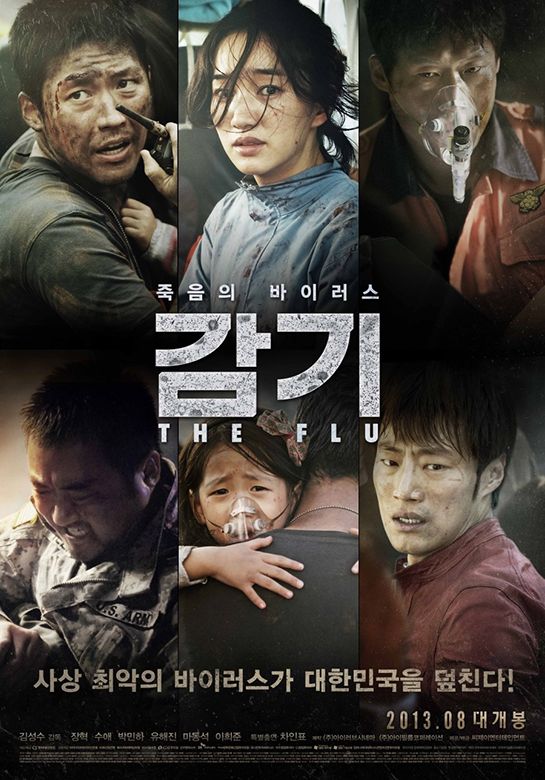
![]()
In anticipation of Jang Hyuk’s return to the small screen this week, it seems only proper to take a look at his work in last year’s big budget event film The Flu, which made only a moderate box office splash as the twentieth highest-grossing film of 2013 while garnering absolutely zero awards, and… huh.
I guess I’m used to having more accolades to write about in this area, which either means I’ve been lucky up until now, or that I’ve finally stumbled upon a bonafide summer movie that was only ever meant to be seen and enjoyed once before being politely shelved away in our memory banks. It’s not as bad as it sounds, really—if every movie was as emotionally affecting as Miracle in Cell No. 7, it’d make the idea of continuing to live seem like a bleak and impossible chore. (Wait, maybe I’m just describing the process of watching Doctor Stranger.)
That’s not to say that recognizing The Flu as a popcorn flick excuses what amounts to middle-of-the-road storytelling, but there’s something to be said for a movie that’s inoffensively entertaining despite a mostly implausible and sometimes incomprehensible plot. Its saving grace is in the performances of its two main leads, who give their all in making the life-and-death struggles of their characters feel real and grounded, enough to make us question how far we would go and how much we’d be willing to sacrifice in order to save the ones we love.
As evident by the title, the premise of the film revolves around a massive and sudden epidemic of H5N1, or avian influenza, as it spreads its way through one of the largest developed districts in Seoul. While H5N1 as we know it can only be passed through direct contact with infected bodily fluids (with few cases of human-to-human transmissions), there exists a global concern that this very adaptable virus could mutate into a highly contagious airborne pandemic with the potential to surpass the mortality rate of the 1918 Spanish flu outbreak—up to 150 million people and beyond.
Scary stuff, right? Disaster movies have it easy in that sense, because they can take one aspect of our universal fear of death and exploit it mercilessly. There seems to be a tried-and-true formula when it comes to epidemic movies specifically, and though it’s hard to knock a formula that works (virus breaks out, people and governments panic, cue last-minute vaccine creation), we’ve become so oversaturated with pandemic stories that just adhering to the formula isn’t enough these days. You’ve got to do something more.
And that doesn’t necessarily equate to larger scales and higher budgets—it’s not like every zombie movie can be World War Z now—but The Flu could’ve done well by taking a look at its awe-inspiring dramaland cousin End of the World, which took the same premise of an apocalyptic pandemic and made something truly unforgettable and deeply resonant. The Flu attempts to go that route by giving us a tiny glimpse of what it would be like if H5N1 were to go airborne in a densely populated area of Seoul, but adheres so strictly to the recipe for traditionally good disaster flicks that it forgets to add its own flavor.
Our two leads are introduced to each other when KIM IN-HAE (Su Ae), crashes her car into a construction zone and has to be rescued by firefighter KANG JI-GU (Jang Hyuk), in a first half hour that’s deceptively light in tone for all the doom and gloom to follow.
Both are heroes in their own right, though it becomes obvious as the film progresses that Ji-gu and In-hae have very different sets of values when it comes to what each of them is and isn’t willing to do for the greater good. Both are in professions created in the service of others, with her being a doctor and him being a first responder, but Ji-gu has an advantage that In-hae doesn’t: No one is depending on him.
In-hae, however, is a single mother with a young daughter, KIM MI-REU (played by Park Min-ha) to care for—and her unrelenting devotion to Mi-reu is inarguably the driving force behind everything In-hae does. Whereas Ji-gu has a moral obligation to help others even at the expense of self, In-hae has no such predilections when the outbreak hits and her daughter ends up being one of the first infected.
Like all virus origins stories, this one has a simple beginning: A human trafficking ring responsible for smuggling illegal immigrants into Korea for profit unknowingly brings a foreigner sick with a new strain of H5N1 into the country. He’s sick from the moment he boards the cargo ship container, which begs the question whether he’s the first or whether the virus has already broken out in his own home country. The Flu never bothers to answer that question, even as high-level investigators working for the president and prime minister attempt to investigate the source of the virus and pinpoint it down to the only immigrant who survived the journey. They never question where he came from or whether the virus has been found elsewhere, since they seem to prefer focusing on killing their own citizens. But for the purposes of the story, it’s easier just to think of him as Patient Zero.
During the beginning stages of the outbreak, little Mi-reu innocently befriends Patient Zero while he’s on the run from the smugglers, bringing him food and water (in a way that will cause anyone who’s seen Outbreak to think of Outbreak). One smuggler in particular has it out for Patient Zero since his brother, played by Lee Sang-yeob, was the first to come down with the virus after they opened the cargo container carrying Zero and dozens of other dead immigrants.
The movie doesn’t understand the meaning of subtlety when it comes to showing how quickly and easily the airborne virus is spread, which in a way detracts from the fear factor of the epidemic. Viruses are scary because we can’t see them, and because sometimes all the protective measures we take aren’t good enough. But in this case, the germs are animated and therefore visible as they pass from one person to the other. It’s effective, but we would’ve just as easily (if not more effectively) gotten the point if we weren’t literally being hit over the head with the movie going, “See how quickly it’s spreading? See?!” Really, one person lightly coughing in a crowded room would’ve been enough.
In-hae is called in to help the CDC right before the worst of the outbreak hits (it’s unclear whether she’s a virologist or just an enlisted doctor), which is when the story veers away from any hope it had of being all that medically accurate in favor of making the spread of the virus into more of a spectacle. Why go quiet and deadly when you can go big and loud? it seemed to have asked itself.
So while the doctors explain the virus as having a slim thirty-six hour window between infection and death, their theory doesn’t quite explain how the outbreak first reaches catastrophic levels. I got the feeling that the film wanted to be a summer action movie with a little something for everyone, and that it was unsatisfied with the idea that it couldn’t be a large-scale disaster movie with an invisible killer. In order to remedy that, they made the initial outbreak into an event on par with a zombie film, so that the deadly effect of the virus just so happens to hit a lot of people all at once in as dramatic a fashion as possible—people going about their daily lives begin to vomit blood and die almost instantaneously.
In-hae and the group of CDC doctors and scientists end up watching as the city starts to burn. Roads become clogged with crashed cars as drivers die behind the wheel while brides cough up blood at their wedding altars. It all comes on with seemingly no warning, aside from the very obvious wracking coughs no one seemed to notice.
In the mean time, friendly do-gooder Ji-gu has made friends with a precocious Mi-reu, who acts as her mother’s guardian and is initially distrustful of Ji-gu—at least until she needs him for something. It’s cute how Ji-gu can’t stand up for himself when it’s Mi-reu making all the orders, and that he seems to bond with Mi-reu first despite having a schoolboy crush on In-hae.
Since he’s out with Mi-reu when everything goes to hell, he becomes her protector as they brave the chaos to try and reunite her with her mother. In the meantime, we get the beginning of the political side plot, which is mostly just corrupt politicians arguing about how to take action when it could negatively impact their careers, with the president being the only politician who legitimately cares about the people.
A press conference is held, the nation panics, and despite the wide reach of the virus, it somehow hasn’t spread outside the limits of an affluent district in Seoul called Bundang. The higher-ups make the executive decision to put Bundang under complete lockdown and to set up a quarantine camp inside that will ideally separate the infected from the uninfected and stop the spread, which has reached an alarming rate of two thousand new cases per hour. (But which, again, still hasn’t spread outside of that one district.)
Ji-gu gets a chance to show his true colors when he helps In-hae and her daughter narrowly escape being locked inside a store filled with panicked people and riot police who are all too happy to use excessive force. But when In-hae tries to get Ji-gu to leave with her on a helicopter that’s been especially prepared for her and her daughter, one of the last that’s leaving before the total lockdown, he declines so that he can stay and help the people still trapped inside.
In-hae tries to convince him by telling him that he doesn’t have a duty to help these people when none of them know he’s a first responder, only for him to reply that he knows. And unlike her, he can’t just stand idly by while people are in need.
On the flip side, In-hae can ignore other people’s suffering, and does so frequently. The film makes a concerted effort to depict her as a protective mother only trying to do the best for her daughter, and to an extent we can understand why In-hae would conceal the fact that Mi-reu is infected in order to keep her daughter with her.
But since In-hae is also a doctor, the fact that some of her more morally questionable actions go unchecked becomes bothersome. For instance, she tries to sneak Mi-reu onto the last helicopter leaving town while knowing that she could be putting a whole new group of people—and the nation as a whole—at risk of infection by doing so. They don’t get the chance since they’re turned away when Mi-reu coughs, but In-hae tries her damnedest to get Mi-reu out of the city anyway.
While the authorities from the CDC work with the worst government officials ever to try and track down Patient Zero, In-hae, Mi-reu, and Ji-gu are sent to be processed at the quarantine camp. Again, In-hae ignores protocol and sneaks Mi-reu through the checkpoint meant to separate the sick from the healthy, which puts all of the uninfected at risk—even though In-hae claims she’s taking precautions to minimize the chances.
Conditions in the camp are terrible, and the infrastructure too chaotic for In-hae to have a shot at using her position to get her and her daughter out of dodge. It doesn’t help that they’re all assigned numbers rather than names, and that anyone who shows any sign of being infected is promptly dragged off and never seen again.
Ji-gu still tries his best to do his job even within the confines of the camp, and proves to be quick when he realizes that Mi-reu is sick and that In-hae is concealing it. He confronts her over what she’s doing, especially since she’s a doctor, but her defense is that it’s because she’s a doctor that she can’t let them take her daughter. She knows what they’re doing to the sick because she knows that there’s no cure.
Too optimistic for his own good, Ji-gu refuses to believe that the government could be systematically killing infected citizens. And, truth be told, that reveal is one of the more unbelievable aspects of the story. Yes, we can expect a collapse of the system during a crisis as large as this, and for their part, they try to cover their international bases by having an “American” (aka someone with thick, accented English) representing the United States’ interests during the political discussions.
But when In-hae is finally called to help work on a vaccine once Patient Zero is apprehended, she leaves Mi-reu in Ji-gu’s very capable hands. He takes care of her as if she were his own daughter, and though the romance with In-hae is understated, both Su Ae and Jang Hyuk are so natural in their roles that they make the connection they have with each other feel natural, and the progression organic. Plus, Ji-gu is just one of those rare, genuinely good guys who’d be handy to have around in apocalyptic situations.
He proves to be even more self-sacrificing when the police come to take Mi-reu away to wherever they take the infected people, but since they only have her assigned number to identify her with, Ji-gu switches numbers with her so that they take him instead. Luckily, his fellow first responder helps to get him back to the less terrible part of the camp.
Despite their best efforts, Mi-reu is taken away from In-hae after she tries desperately to manufacture the fastest and most impossible vaccine ever from Patient Zero’s blood to inject into Mi-reu. She injects about half the dosage before the police knock down the door to apprehend her.
In his attempt to follow Mi-reu and save her, Ji-gu finds the place where they’ve been dragging off the infected by the thousands: a sports stadium that’s been converted into a crude, mass crematorium. And just in case the politicians weren’t bad enough already, he finds that most of the people who’ve been bagged and left to burn are still alive—only no one who should care does, since they argue that the infected will die anyway.
Though Ji-gu eventually manages to find Mi-reu alive among the endless piles of the dead and dying, the people imprisoned in the camp finally realize that they’re being systematically exterminated by their own government and revolt.
In-hae is stuck on the other side while Ji-gu and her daughter are caught up in the mob as thousands of very angry people threaten to cross the line separating them from the rest of humanity. There’s also a strange side plot dealing with a very angry man who has it out for Ji-gu which I won’t explore here, because frankly it felt added on just to increase the already-heightened drama. Just know that it happens, even if it doesn’t affect anything.
The decision on what to do with the rioting mob is then left to the corrupt government to solve, as they debate the pros and cons of killing every citizen in Bundang for the greater good. For what it’s worth, the president of the country spends almost the entirety of the movie being powerless against the prime minister, who’d rather kill citizens en masse just to be safe. I gave up on the legitimacy of the political aspect of this story early on, suffice to say that the president gets his moment to shine later when faced with the possibility of American air strikes against the quarantine zone.
I can sort of see why The Flu underperformed at the box office, even if I found it more palatable than some of summer’s other blockbuster offerings like Cold Eyes, which was released only a month prior yet garnered more critical acclaim, box office revenue, and even a few perplexing awards for its acting. Both films are alike in scope, target audience, and use of A-list stars, yet one did undisputedly better than the other. And now that I’ve seen both, I’m having a hard time figuring out why.
That being said, since I’m sure comparing summer blockbusters would be as worthwhile as nailing jello to a tree, I’ll just chalk this one up to my natural predisposition to like apocalyptic pandemic stories and Jang Hyuk more than crime thrillers and a severely underutilized Jung Woo-sung. At least here we have the human connection in following a makeshift family trying to stay together and protect each other when the system they depended on to help them not only collapses, it turns against them entirely by treating them as less than human.
It’s just a shame that Ji-gu and In-hae spent more time apart than together, since they were both compelling characters to watch for completely different reasons. Exploring their difference of opinion and varying moral values would’ve given the movie some added emotional heft, but inadequate screen time spent establishing character would be pretty low on the theoretical priority list compared to the implausibility of some (or all) of the plot. Is the lesson here that you can’t win ‘em all? Or even win at all?
Bottom Line: Entertaining despite its lack of originality, The Flu boasts a talented cast and a few haunting images inside its all-too-familiar disaster film packaging. Dumbs down everything there was to like about Outbreak for a new generation, but does so in style. 6/10.
RELATED POSTS
- Hide and Seek leads the thriller-packed box office
- Jang Hyuk and Su Ae battle deadly virus
- Jang Nara and Jang Hyuk reunite for summer rom-com
- Joseon romance thriller Age of Innocence finalizes its cast
- Jang Hyuk considers sweet romantic melo Strawberry Milk
- Movie Review: The Client
- Yawang’s eye-catching promo posters
- Su Ae joins Jang Hyuk in action thriller
- Thousand Day Promise: Episode 1
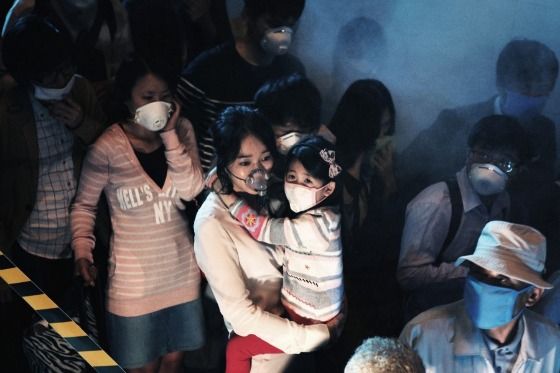

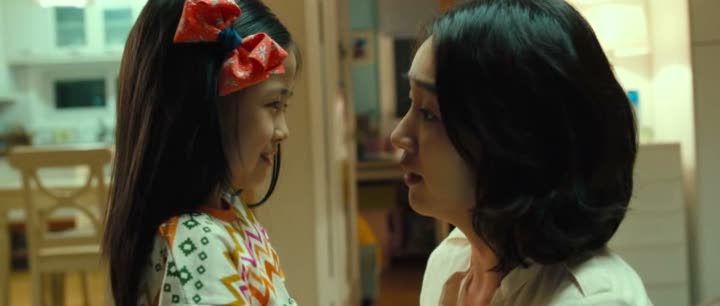
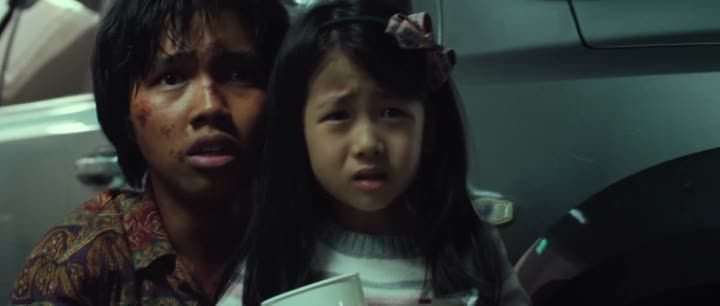
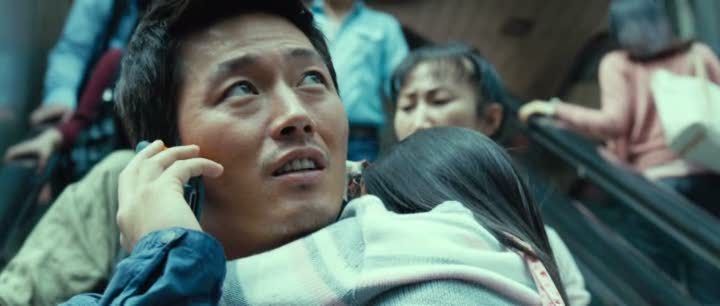
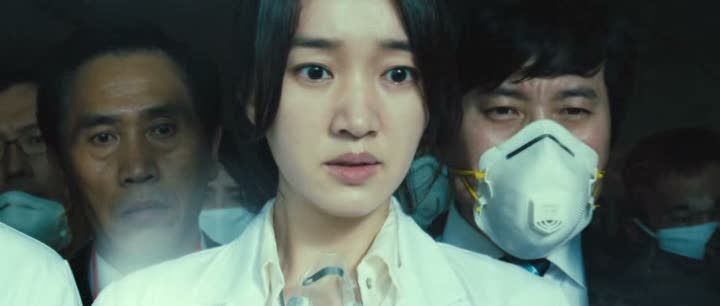
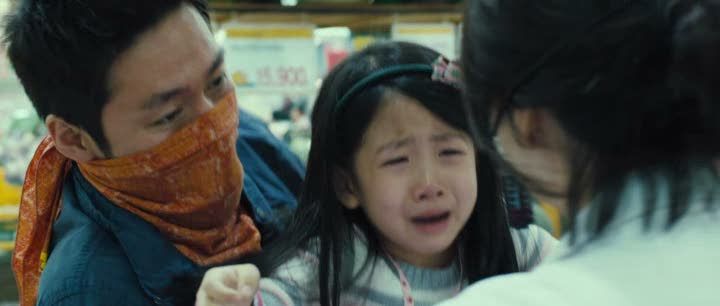
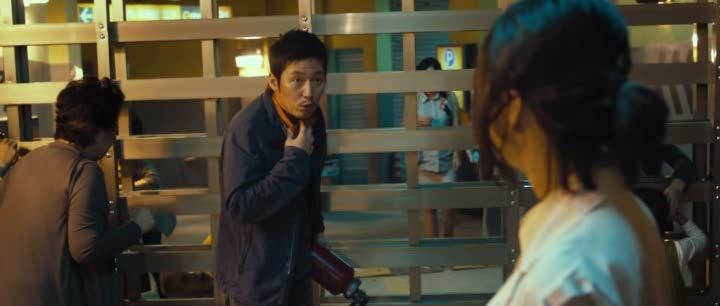
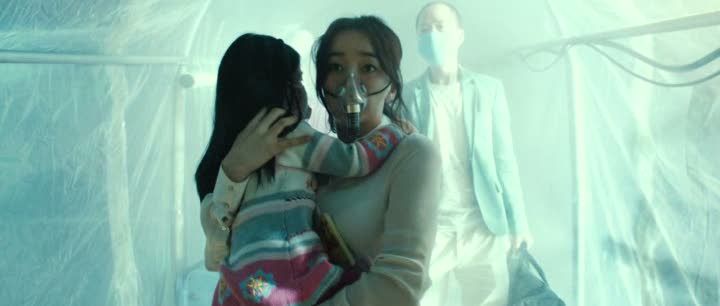
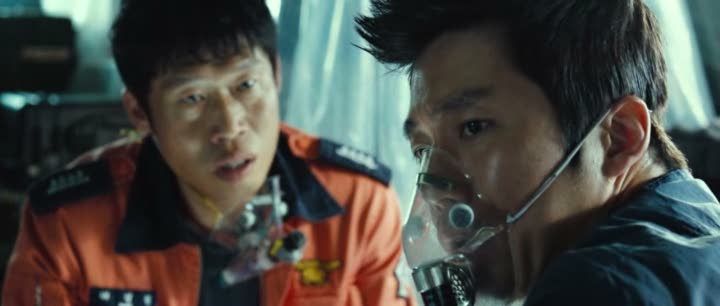
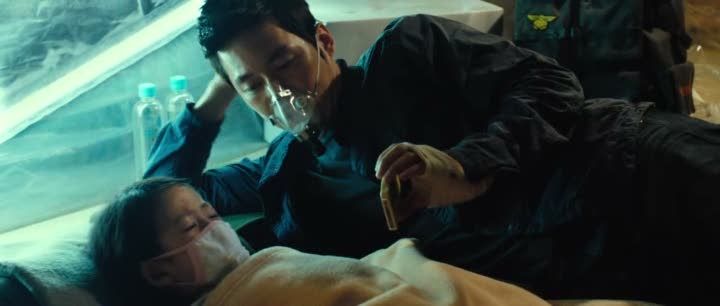
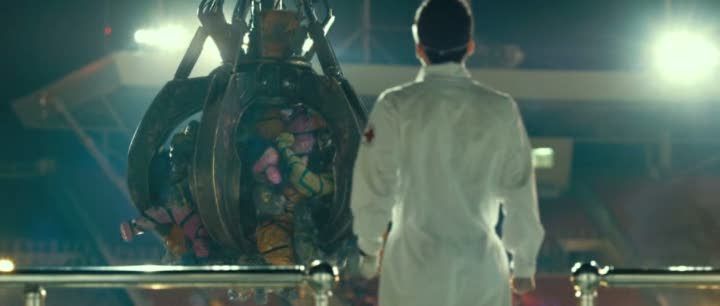
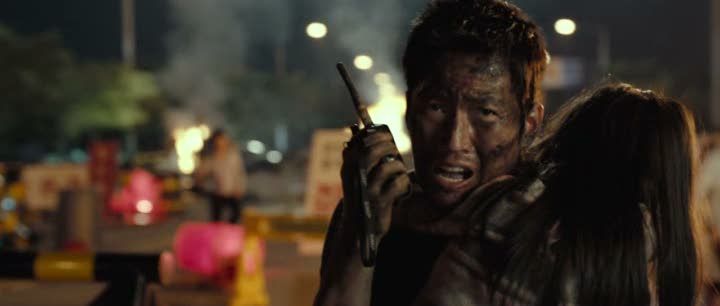

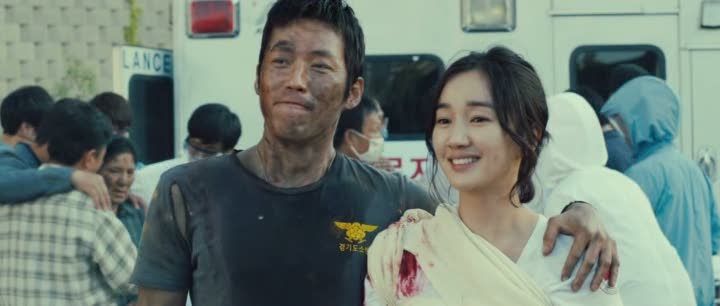
 Interview with Kim Yoo-jung
Interview with Kim Yoo-jung Hello Dramabeans series
Hello Dramabeans series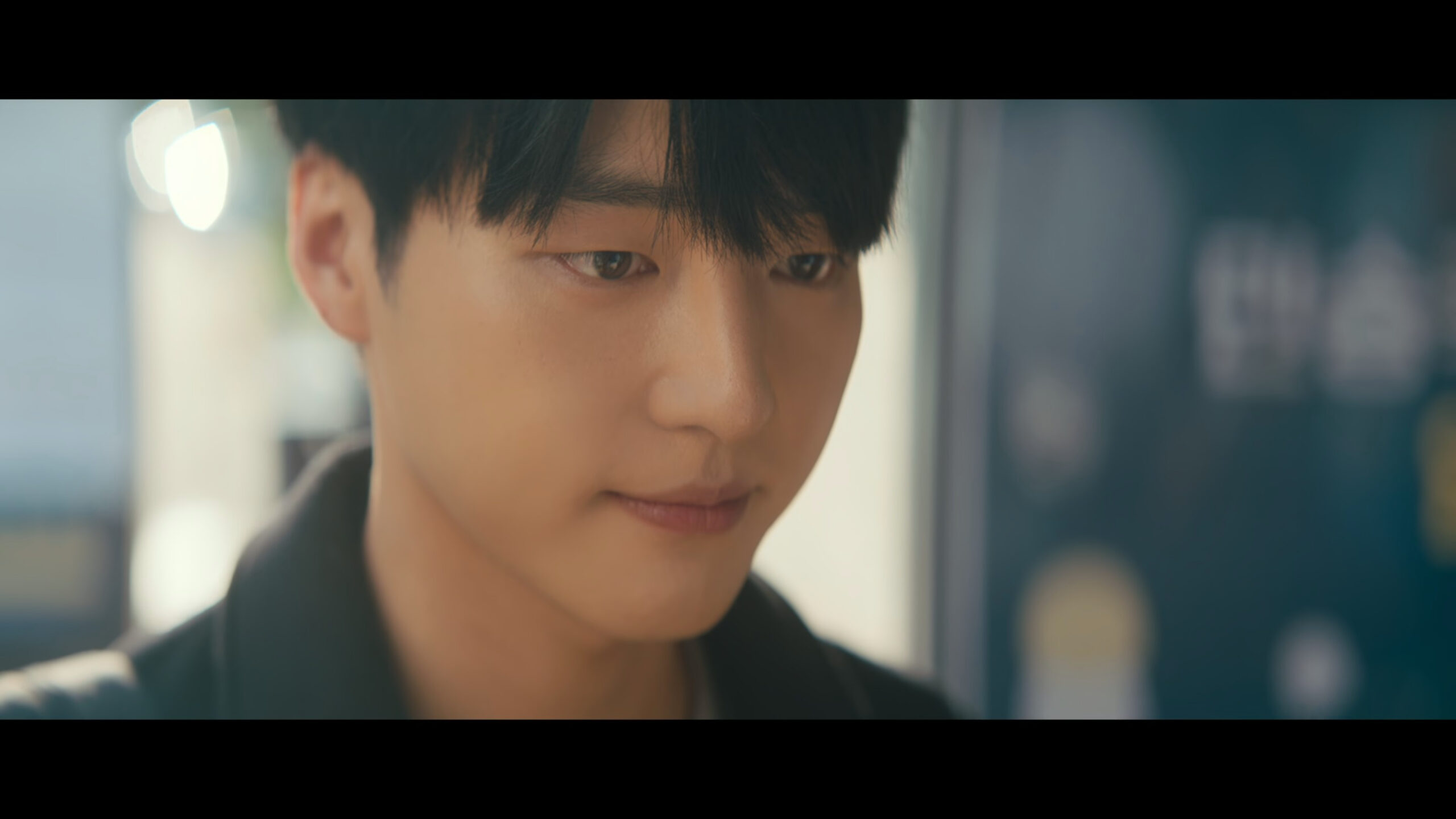
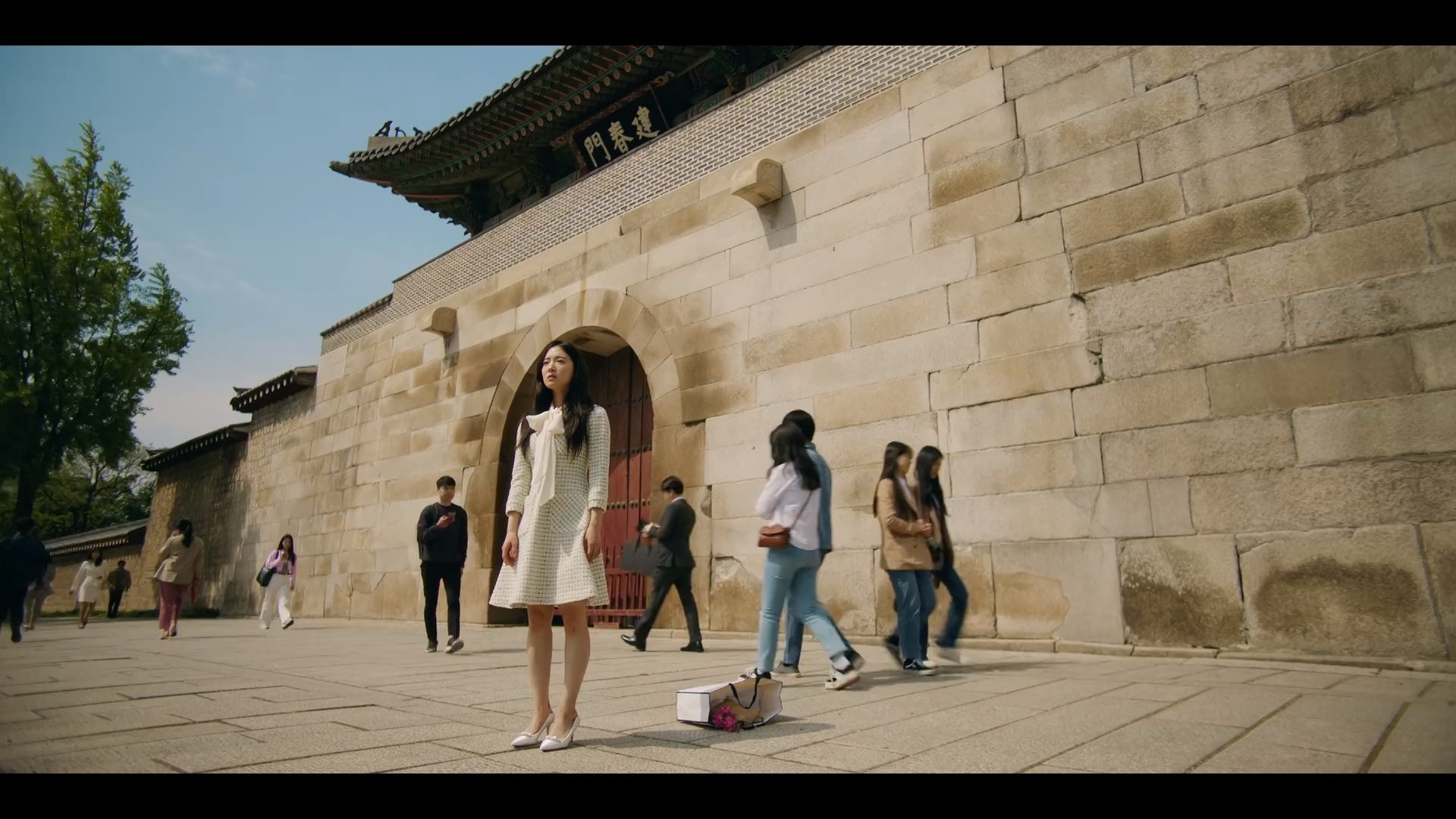


![[2022 Year in Review] The Bean Count](https://www.dramabeans.com/wp-content/uploads/2022/11/beancount_2022.png)

Required fields are marked *
Your email address will not be published. Required fields are marked *
1 owl
June 29, 2014 at 8:28 PM
"I’ll just chalk this one up to my natural predisposition to like apocalyptic pandemic stories..."
As much as I ♥ Jang Hyuk, I should've known better because my predisposition is to dislike apocalyptic pandemic stories a whole lot. Jang Hyuk was the worm on the hook that lured me to even watch it in the first place, but after cringing through the whole movie, as expected - it wasn't for me.
Thanks for the interesting recap from a pandemic lover's perspective, HeadsNo2!
Required fields are marked *
2 dearly
June 29, 2014 at 9:16 PM
This was a disappointing movie, sadly to say because I love Jang Hyuk & Soo Ae. But I prefer this movie than "Cold Eyes". "Cold Eyes" was a huge disappointment because everything was so predictable despite Jung Woo Sung's awesome portrayal.
Required fields are marked *
3 Fantastic review
June 30, 2014 at 1:07 AM
Thanks for the review Heads. I feel like I've seen the movie without having to watch it. You have a great writing style!
Required fields are marked *
4 Angélina Eang
June 30, 2014 at 1:12 AM
I was disappointed by the movie too.
The happy ending with the comic scene at the end really threw me off. I mean, they showed how the governement disposed of the bodies (dead or alive) in that huge stadium which was supposed to be the top of the horror and all and then, we have that ... It's just so weird. An ending so easy.
I don't mean that everyone should have died but come on, it's a deadly virus ! I know that main characters don't die especially when it involves a child but it was just so disappointing.
And I am a huge lover of Jang Hyuk so it was more disappointing than disappointing lol. And I like Soo Ae too (especially when she slices throats in Athena, so badass xD)
Required fields are marked *
5 ancientgranpa
June 30, 2014 at 5:03 AM
Wow... complete opposite from my reactions after watching this movie. I choose this movie randomly and endup like it.
I totally love it! hahaha... I love disaster movie. This movie give me thrill and intense feeling. I'm not expecting anything nor thinking anything while watching, its such a good stress reliever after a tiring day.
Also someone mentioning about Cold Eyes above. I have opposite reactions too. Cold Eyes even make to my Kmovie fav list. I really love Han Hyo Joo there. Already rewatching it few times XDD
Required fields are marked *
6 Pororo
June 30, 2014 at 5:09 AM
that hair suits more him than the next drama hair.
Required fields are marked *
7 windsun33
June 30, 2014 at 11:49 AM
As much as I love disaster movies, this movie was itself a disaster, perhaps only worse than Sharknado and a few similar really low budget fake SciFi movies.
It seemed to have every possible cliché, and dozens of factual technical and medical errors. And dozens of scenes where you ask yourself "why would anyone DO that??".
And of course we had to have the random anti-American jibe "..the possibility of American air strikes against the quarantine zone...".
Required fields are marked *
8 Msb
June 30, 2014 at 1:20 PM
I second the disappointment. I don't have an aversion to epidemic movies but this was just meh!
Required fields are marked *
9 Chiaki
June 30, 2014 at 1:51 PM
This movie was so epic! I came across it on youtube and I was so grateful I found it. It had me hooked from beginning to end. I recommend this to everyone :D
Required fields are marked *
10 Quiet Thought
June 30, 2014 at 3:56 PM
Ludicrously sociopathic politicians are a sure sign of a failing thriller. I mean, I know of a lot of elected politicians in our American democracy who need to be in jail, and a few who could stand to be hung. However, they almost always run for office because they want to LEAD, and even most of the crooked ones have some sense of responsibility towards their jobs. And even if they don't, they know they have to at least fake it.
Required fields are marked *
11 Quiet Thought
June 30, 2014 at 4:00 PM
. . . And, of course, even though the United States has been staring across the DMZ with North Korea for FIFTY YEARS without staging a military attack, every other movie or TV show that mentions us has us plotting to bomb something and kill some innocents, always ignoring our South Korean allies to do so.
Required fields are marked *
12 meimei
July 2, 2014 at 3:12 AM
wow, im surprised by all the negative comments. I actually loved this movie. The acting was amazing. I really enjoyed how it was comedic at the start then turned into a thriller quickly. I get its a standard epidemic movie but It seemed different to me, i found it did try and have a sense of realism and explain things. I dont know. Im so damn sick of zombie epidemics that The flu was a nice change. But I really did enjoy this movie. I saw it on a plane trip back wehn it was released and serched on youtube to watch it again. I love it.
Required fields are marked *
13 pohonphee
August 1, 2014 at 7:25 AM
4/10 for this movie from me. The writer is lazy. I don't know if it is just a bad translation, but when the "virus experts" in the movie starts to explain that the flu virus is similar to HIV in which they can spread easily via droplets, I want to throw my head out of the window. It is an insult to my knowledge. Way to spread wrong information, see this is what makes prejudice and stigma againts people with HIV getting worse. Be responsible with your work writer-nim, let's start it with thing called research.
Required fields are marked *
14 Ariff
January 4, 2015 at 10:44 PM
wow like seriously, why there is too much negative comment haha. I'm in love with this movie ! The acting is awesome , the story line is superb, i cant say much but this movie is very recommended !
Required fields are marked *
15 prettysup
July 9, 2015 at 5:35 PM
This movie was pretty intense for the entire 120 minutes! Not to mention Jang Hyuk was his awesome self here, highly recommended!
Required fields are marked *
16 YanaLee
January 14, 2016 at 11:56 PM
For me...it wasn't a disappointment.
But I will give it a 9/10 there were no dull moments and thus the story is heartwarming yet selfish love.
In case a pandemic virus happen to us...expect what would be the GOVERNMENT will do to us if you live on a 3rd world country like PH. And if so, American will help they will do the cruel way of diminishing the people infected or not.
Anyway i don't want to give a full review. I just saw this movie on facebook so we tried it and enjoy it and face the cruelty of the world..hahaha.
Required fields are marked *